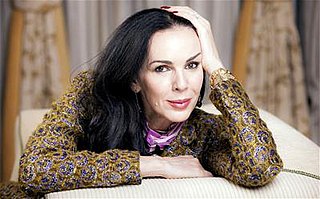A Quote by L'Wren Scott
Today's market action is driven by the slower GDP growth rate. Despite oil being higher, I think the GDP kind of overruled everything and just makes the market feel better about what the Fed is going to do, or rather not do.
Related Quotes
It is argued by our GDP obsessed policy planners that eventually the money being made by the stock market operators or the IT industry would trickle down to the poor farmers in terms of ancillary jobs that would be created. But the fact is, that this has not happened, despite the boom in the stock market and the IT industry.
People think that this concept of GDP is scientific economics, partly because it has a precise number and can be quantified. But the underlying concept of "the market" makes it appear as if today's poverty is natural. It makes it appear that Goldman Sachs and Donald Trump are job creators instead of job destroyers. That is illogical, when you think about it.
You don't actually find a strong correlation between- top-line GDP growth and making money in the market. It- it seems like you should. The fastest-growing countries should give you the highest return. They simply don't. But, there's only four of us- that- that believe that story. Everyone else in the world believes that if you grow fast like China, you'll outperform in the stock market.
For any economy, there are two basic factors determining how many jobs are available at any given time. The first is the overall level of activity - with GDP as a rough, if inadequate measure of overall activity - and the second is what share of GDP goes to hiring people into jobs. In terms of our current situation, after the Great Recession hit in full in 2008, US GDP has grown at an anemic average rate of 1.3 percent per year, as opposed to the historic average rate from 1950 until 2007 of 3.3 percent.






































